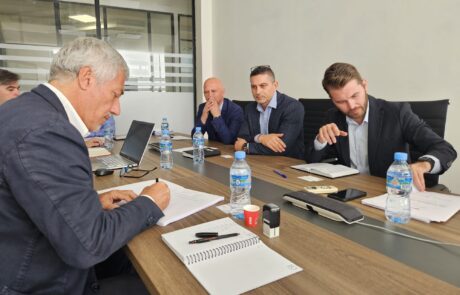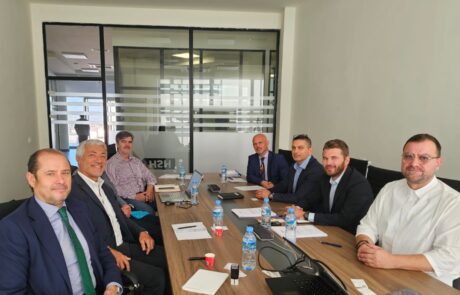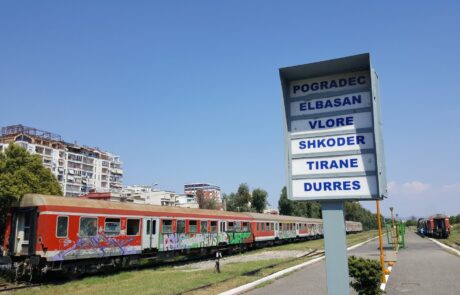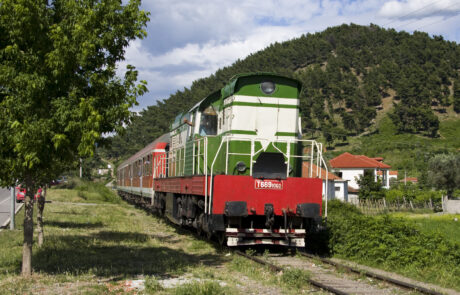The railway network in the Republic of Albania consists of approximately 420 km of main lines and 100 km of secondary lines. It is a radial system that extends from the city of Durres, near its port, the largest in Albania, and is divided into three main lines. Due to underinvestment and lack of competitive offer, the decline of rail traffic in the country has been one of the most severe in the region and the current state of the railway superstructure is very poor, with speed limits of 60 km/hour for passenger trains and below 45 km/hour for freight trains.
For this reason, the development of a safe and sustainable railway transport is one of the strategic priorities of the Albanian Government that set up the public company “Hekurudha Shqiptare” (Albanian Railways) to perform the function of State Operator of the national railway network.
The existing 120 km railway line between Vore and Hani i Hotit, connecting Albania with Montenegro and further north with the European Union (EU), is an obsolete infrastructure that has no signaling or control systems in place. The average speed along the existing line is 35-40 km/h, which decreases to 5-10 km/h along certain segments. Furthermore, the earthquake of 2019 caused permanent damages, completely disconnecting certain sections.
Last July 2024, an agreement providing €136 million in grants for its rehabilitation was signed. The funds are provided by the EU through the Western Balkans Investment Framework (WBIF), representing the largest EU grant given to Albania to date. The investment project, worth €373 million in total, is co-financed with loans from the European Investment Bank (EIB) (€100 million) and the European Bank for Reconstruction and Development (EBRD) (€99 million), who is the lead financing institution on the project.
The project aims at the complete rehabilitation of the existing railway section, including the signaling and telecommunication and the electrification supply and installation, increasing its average speed to 100-120 km/h. The whole scheme will be implemented through works contracts administrated under FIDIC Plant and Design-Build (Yellow Book).
In this context, IRD Engineering has recently signed a contract with the Albanian Railways to facilitate the timely and effective implementation of the overall project, by providing all kinds of technical assistance during the procurement and implementation of the complete scheme.
For the next five years, a team of specialists from IRD Engineering will assist the Project Implementation Unit (PIU) at Hekurudha Shqiptare in a wide range of activities, such as the preparation of technical documentation, assistance during the procurement of works and supervision services, design review, support with all compliance and reporting obligations under the financing documents, backing the implementation of the environmental and social action plan (ESAP) requirements, monitoring all health and safety aspects, and training of PIU staff and implementation of good international practices in the railway sector.
Either as owner’s advisors or as independent engineers, IRD Engineering is a leading company in the implementation of railway projects, providing whole management and supervision services, covering all aspects and all phases, and achieving project completion on time, within budget, and with the desired quality.
IRD Engineering is present in Albania since 2010.
If at any time you have any questions or want to give us your feedback, please e-mail us at info@irdeng.com







